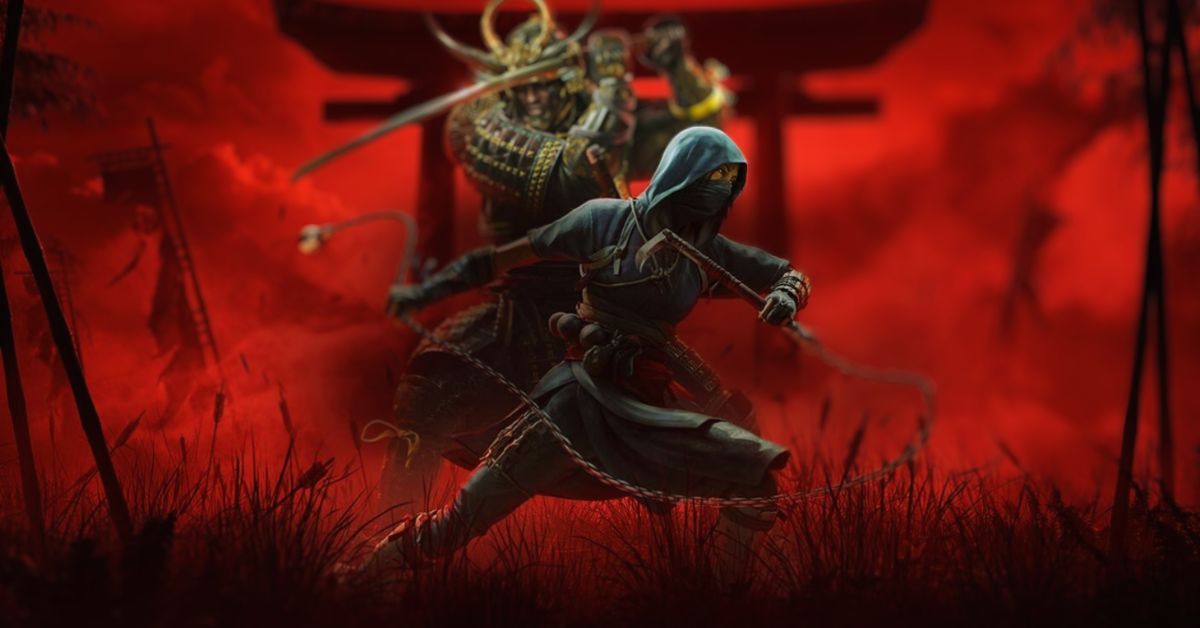Some people on the internet are upset about Ubisoft’s Assassin’s Creed Shadows because it features a Black man and a Japanese woman as the main characters. They claim the game is “woke” and not true to history, even though Yasuke, one of the characters, is a real historical figure.
This criticism is happening even though the series has always included fantastical elements like fighting mythical creatures and visiting Atlantis.
These critics are using thinly veiled racism, pretending to care about historical accuracy to justify their prejudices.
They are trying to stir up anger in their communities, similar to what happened with the game Stellar Blade. As soon as the key art for Shadows showed a person of color as the main character, the same backlash occurred.
Ubisoft Reveals Assassin’s Creed Shadows
Ubisoft has finally announced its long-awaited Assassin’s Creed game set in feudal Japan, called Shadows. It features two main characters: a ninja named Naoe and a samurai based on the historical Black samurai Yasuke.
When Assassin’s Creed Shadows was first announced, it felt like Ubisoft waited far too long to bring the franchise to Japan. But through its two excellent protagonists, it’s doing a great job forging its own identity.https://t.co/5pFgJgWx7E
— Trone L. Dowd (@theloniusly) May 16, 2024
While there’s a lack of Asian representation in Western games, it’s ironic and ridiculous that people are only now talking about needing an Asian protagonist because Assassin’s Creed Shadows stars a Black samurai.
This misses the bigger issue. I always support more Asian men in big games, but having another samurai hero isn’t the best way to get better representation.
Assassin’s Creed Doesn’t Care About Historical Accuracy

Assassin’s Creed has always featured outsiders and rebels from different backgrounds and has moved away from strict realism. It’s not meant to be a super realistic game, so using that argument to justify bigotry is wrong.
The reactions to Shadows on social media have been awful, even though it was just announced.
People of color expressing their excitement are facing blatant racism, hateful memes, and trolls saying they’re only excited because they can play as a character like themselves, ignoring the long history of diverse characters in games.
Much of the outrage comes from claims that Yasuke, a Black samurai, is historically inaccurate and that Ubisoft is pushing a political agenda. However, Assassin’s Creed has always included major and sometimes controversial historical figures in creative ways.
For example, Margaret Thatcher is depicted as a Templar in the series. Shadows isn’t changing history to be more progressive; it’s doing what the series has always done.
Yasuke has been featured in many books, films, shows, and anime, but only in a mainstream video game does his presence cause such outrage.
This shows how toxic and guarded the gaming community can be. Yasuke is a famous figure whose story has been adapted in many ways, and Ubisoft will likely mix fact and fiction in Shadows, as usual.
This is similar to how the game Like A Dragon: Ishin portrayed Sakamoto Ryoma as Kazuma Kiryu, bending the truth for spectacle while respecting history. Yasuke is treated differently because he is Black, which reveals ingrained prejudices.
We don’t know much about how Shadows will depict Japanese history or its feudal period. It may include folklore and alter history for its story, and there wouldn’t be such an uproar if the main character was of another race or from another country.
Japanese developers and players praised Ghost of Tsushima and other depictions of Yasuke without issue, showing that the problem lies with those using this as an excuse for outrage politics.
This situation is part of a larger pattern where people of color, women, LGBTQ+ individuals, and other minorities face hatred in the gaming community.
It’s exhausting and worsening, but the controversy around Assassin’s Creed Shadows has no real substance. It’s just another Ubisoft open-world game set in a historical period with a mix of realism and fantasy elements.
